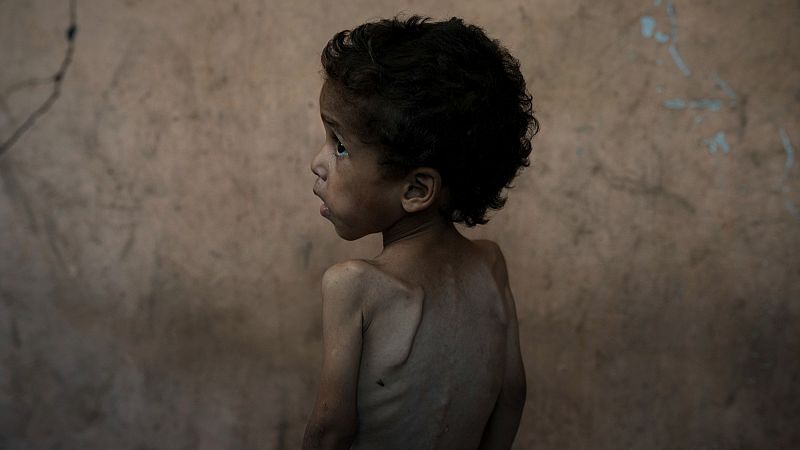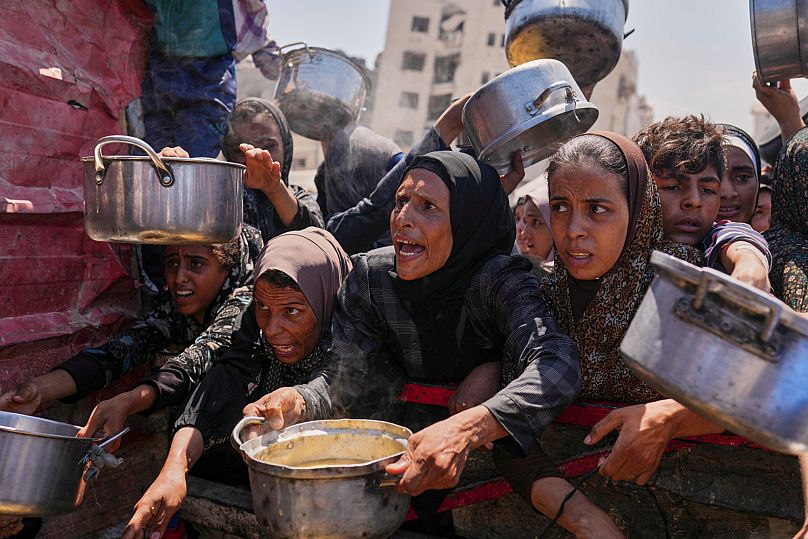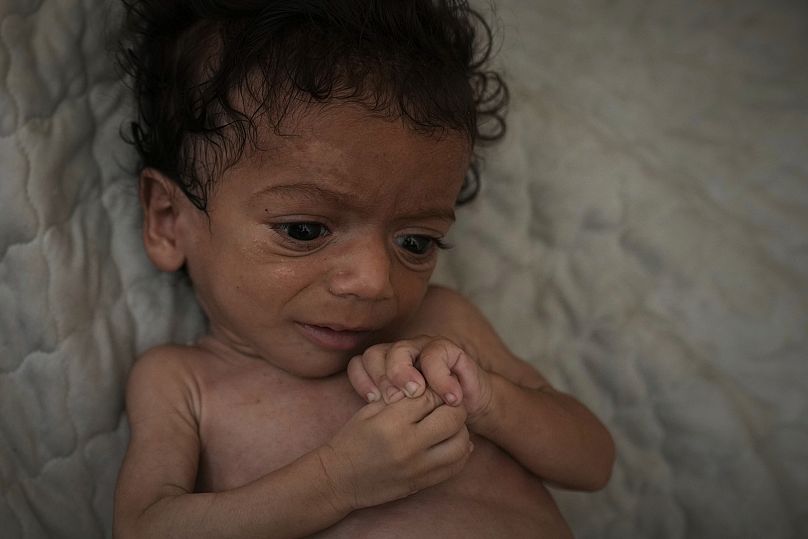How malnutrition in Gaza is devastating children's health

Gaza is battling an unprecedented health crisis driven by severe malnutrition, with medical and humanitarian experts warning of catastrophic consequences on the horizon.
After nearly two years of relentless war, worsened by months of aid restrictions enforced by Israel, the population of Gaza is facing what humanitarian organisations describe as famine-like conditions. While an official famine declaration has not been made, aid agencies warn that widespread death is expected if immediate nutrition and medical interventions aren't made available soon.
The Integrated Food Security Phase Classification (IPC), the leading global authority on hunger emergencies, issued a stark alert last week, declaring that "the worst-case scenario of famine is currently playing out in the Gaza Strip".
"Mounting evidence shows that widespread starvation, malnutrition, and disease are driving a rise in hunger-related deaths. Failure to act now will result in widespread death in much of the Strip," the group added.
The World Health Organization (WHO) says malnutrition in Gaza has reached "alarming levels".
Last month, the United Nations’ Palestinian refugee agency (UNRWA) reported that one in five children in Gaza City is malnourished, with cases increasing daily.
“People in Gaza are neither dead nor alive, they are walking corpses," said Philippe Lazzarini, the UNRWA's commissioner-general.
What happens to the body during starvation?
Malnutrition is not simply hunger – it is a destructive process that ravages the body from the inside out.
In the first 24 hours with little or no food, the body relies on a form of stored sugar called glycogen, which is kept in the liver. Once that sugar runs out, usually within a day, the body begins to burn fat for energy.
In adults, this transition can take longer because they tend to have slower metabolisms and larger energy reserves. But in babies and young children, the switch happens much faster.
Their bodies burn through energy more rapidly because, relative to their size, children require far more calories than adults just to stay alive. Their organs, especially the brain and heart, are still developing and consume a disproportionately large amount of energy.
Once the body starts to rely on its energy reserves, "muscles begin to waste, the vital organs begin to effectively malfunction and slowly the body wastes away," said Dr James Smith, an emergency doctor and lecturer at University College London.
"This affects absolutely everything with respect to the body's normal physiological functioning: the ability to move, the ability to think, the ability to mount an immune response to infections that might seek to attack the body," he added.
Malnutrition can exacerbate other health problems, such as respiratory infections and diarrhoeal infections, that eventually lead to death, Smith said.
How is malnutrition treated?
Treating malnutrition is a complex and delicate process, requiring much more than simply providing food, Smith said. Special nutritional supplements that are rich in certain micronutrients can help fight the effects of both acute and chronic malnutrition.
"It's not simply a case of if one is malnourished that you eat carbohydrate rich foods and you will be able to recover," Smith said.
Christian Lindmeier, a WHO spokesperson, said that in many parts of the world – particularly in developed countries – malnutrition is an overlooked issue because obesity and diet-related diseases dominate public health concerns.
Urgent calls for humanitarian access and medical support
Without rapid and safe humanitarian access, international aid organisations and human rights groups warn that a surge in hunger-related deaths in Gaza is imminent.
"Immediate action must be taken to end the hostilities and allow unimpeded, large-scale, life-saving humanitarian response. This is the only path to stopping further deaths and catastrophic human suffering," last week's IPC alert said.
According to Gaza’s health ministry, 93 children have so far died of malnutrition-related causes since the war began. As the only functioning healthcare authority in the territory, the Hamas-run ministry is staffed by medical professionals whose casualty figures are widely regarded by the UN and international experts as the most reliable available.
Israeli Prime Minister Benjamin Netanyahu has said no one is starving in Gaza and that enough aid has been supplied during the war, "otherwise, there would be no Gazans".
Last week, Israel announced a daily "tactical pause in military activity" in parts of Gaza to allow more aid to flow into the enclave, saying it would "refute the false claim of deliberate starvation in the Gaza Strip".
However, Israel's closest ally now appears to disagree. Last week during a visit to the United Kingdom, US President Donald Trump contradicted Israel's stance by saying that there was "real starvation" and that Israel should allow “every ounce of food” into Gaza.
"Those children look very hungry," added Trump.
Gaza’s crisis is one of the world’s most extreme hunger emergencies – but it’s not isolated.
According to a recent UN report, over 720 million people worldwide faced hunger in 2024, with conflict, displacement, and economic turmoil fueling a global malnutrition epidemic.
Today




